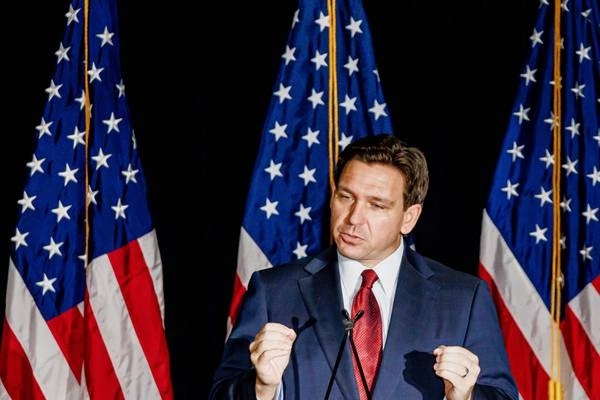Greek archaeologist attacked as tension grows over efforts to preserve ancient heritage of Mykonos

Under cover of darkness in an Athens side street earlier this month, Manolis Psarros, an archaeologist, was attacked as he walked toward his car. It was 8.30pm, later than usual for the state employee to return home from his office in a neoclassical culture ministry building beneath the Acropolis. “There was a general strike the next day and I needed to get through my files on Mykonos,” said Mr Psarros, who has oversight of the Cycladic isle. “I can remember approaching the car but after that it’s a blur,” he told the Observer. “All I know is that I was struck on the head from behind with such force I lost consciousness.” When the soft-spoken Greek came round in a hospital bed on March 8th, he had broken ribs, a broken nose and eyes that had been so severely bruised his vision remains impaired. For doctors they were wounds that spoke: Mr Psarros clearly had been kicked and punched in an assault that bore all the hallmarks of a professional hit. The 52-year-old was lucky to be alive. Almost three weeks later the ramifications of an attack that might otherwise have gone unnoticed are being felt across Greece. As police intensify their investigation, the focus of inquiry has fallen, firmly, on Europe’s most famous party island where a building frenzy has put the archaeological service, entrusted with protecting Mykonos’s rich cultural heritage, on a war footing with developers. For the past decade Mr Psarros has headed the division that issues construction permits on the Aegean hotspot. “Everything about this attack is indicative of how out-of-control the situation in Mykonos has become,” says Despoina Koutsoumba, who presides over the Association of Greek Archaeologists. “It’s clear, as there are no other motives, that this was a Mafiosi-style hit executed by people who followed Manolis from work. It’s about huge business interests and was aimed at striking fear into the hearts of archaeologists.” Greece’s centre-right Greek government appears to agree. From the prime minister, Kyriakos Mitsotakis, to law enforcers and local officials, there was consensus last week that the anomie underpinning illegal construction on one of Greece’s most popular destinations was linked to a crime for which perpetrators have yet to be found. There is no such thing as an island where some people think they are above the law For years, Mykonos has been an international trailblazer as a playground for the rich; its bars, eateries and beaches, venues that have increasingly turned gargantuan profits. But the brutal attack on Mr Psarros has also exposed a darker side: of an island hijacked by interests that have come to see the rocky outcrop in a twilight zone beyond the reach of central government and the long arm of the law. On Wednesday, as Mr Mitsotakis convened a meeting of senior cabinet ministers to discuss the affair, officials were openly describing Mykonos as a “state within a state”.” Giving voice to those concerns, the Greek prime minister warned that public order measures would be enforced. In the coming days the first of 100 extra security personnel, including police officers, financial crime investigators, environment and building inspectors are expected to fly in. A crack down on illegal construction in rural areas, both on Mykonos and neighbouring islands in the Aegean archipelago, will also intensify. “There is no such thing as an island where some people think they are above the law,” said Mr Mitsotakis. “This is a situation that will be faced decisively.” Greece’s community of archaeologists, a group no bigger than a 1000-strong, have long been regarded as the custodians of the nation’s extraordinary historical legacy. For many the hardy band of dedicated excavators and researchers are the last bulwark against depredations increasingly associated with tourism. But with the industry accounting for 25 per cent of GDP – and by far the biggest engine of the Greek economy – it is a delicate balancing act, one that ensures acknowledging the need for visitors with preserving the natural beauty that also lures them to the country. The dramatic comeback of tourism post-pandemic had not helped. With Greece slated for another record season – last year it was the third most visited place on earth – the concerns of archaeologists forced to navigate a notoriously slow-moving bureaucracy matter little to investors. Fines slapped on offenders for building villas, hotels and beach bars close to, or on, ancient sites, “are nothing” compared with profits to be made, say locals who also lament the unruly development of an island that has left many unable to enjoy, or afford it. In recent years, as Mykonos has headed into a stratosphere of its own, investors from the Middle East have also moved in announcing controversial plans to construct a tourist village with a port capable of mooring superyachts. “We want the state to be an ally to protect our island,” Mykonos’s mayor, Konstantinos Koukas, said last week. “We want mechanisms of control to be bolstered and of course we decry any threat against state employees. Today it is archaeologists. Tomorrow it will be us.” Mr Psarros also wants to return to work as soon as he recovers “because to do otherwise, or if I were to be removed from the post, would send the wrong message to my assailants”. Time, says Mr Koutsoumba, is of the essence: last week a female colleague on Mykonos was also targeted with threatening text messages. “If the government means what it says it will have to start demolishing illegal buildings,” said the archaeological association head who will participate in a protest rally outside Koukas’s town hall office on Tuesday. “Right now it’s Mykonos, but later it will be some other island. The time has come for action and that means bulldozers being sent in. It’s the only language anyone will understand. An example needs to be set, and it needs to be set now.”— Guardian
‘Trump without the nonsense’: DeSantis treads fine line as popularity ebbs
Visit of King Charles to France postponed following fierce pension-reform protests
:quality(70)/cloudfront-eu-central-1.images.arcpublishing.com/irishtimes/XUV5ZPSS73GD4VXHARKOSGTZUA.jpg)
SNP leadership race reaches cliffhanger after brutal contest
:quality(70)/cloudfront-eu-central-1.images.arcpublishing.com/irishtimes/DD3FKCQ3AQXQQJNPGM7HFFVDG4.jpg)
Palestinian Authority PM Mohammad Shtayyeh: Holding elections an ‘existential issue’ for leadership
:quality(70)/cloudfront-eu-central-1.images.arcpublishing.com/irishtimes/OQRCBZNWFBSFCBIIMY7WNZUJXY.jpg)



